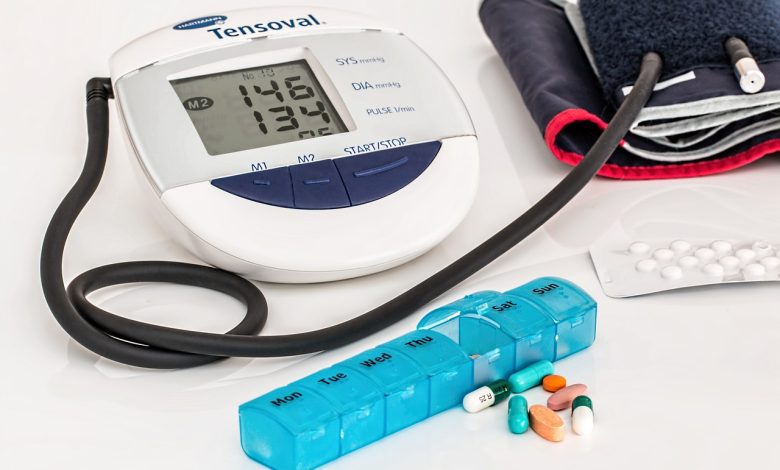
The Role of Gut Health in Overall Well-being: Probiotics and Beyond
In recent years, scientific research has unveiled the remarkable influence of gut health on our overall well-being. Often referred to as the “second brain,” the gut is not merely responsible for digestion but plays a pivotal role in various bodily functions. From immune system support to mental health, the gut’s impact is far-reaching and essential for maintaining a high quality of life. In this article, we’ll delve into the intricate relationship between gut health and well-being, with a particular focus on the role of probiotics and other factors that contribute to a balanced gut.
Understanding Gut Health:
The gastrointestinal tract, commonly known as the gut, is a complex system consisting of organs such as the stomach, small intestine, and large intestine. While its primary function is to process food and extract nutrients, it’s important to note that the gut’s role extends far beyond digestion. Within the gut resides a vibrant community of microorganisms, collectively referred to as the gut microbiota. These microorganisms play a crucial role in maintaining overall health.
Gut Health and Immune Function:
A significant portion of the immune system is located within the gut. The gut microbiota helps regulate immune responses, acting as a barrier against harmful pathogens and supporting immune balance. A harmonious gut microbiome is essential for optimal immune function, as it aids in differentiating between harmful invaders and beneficial substances.
The Gut-Brain Connection:
An intriguing revelation is the bidirectional communication between the gut and the brain, known as the gut-brain axis. This connection allows the gut to influence brain function and even mental well-being. Emerging research suggests that factors such as stress, diet, and the composition of the gut microbiota can significantly impact mood, cognition, and conditions like anxiety and depression.
Probiotics: The Beneficial Bacteria:
Probiotics are living microorganisms that confer health benefits when consumed in appropriate amounts. Commonly known as “good” bacteria, probiotics contribute to a balanced gut microbiome by promoting the growth of beneficial bacteria and inhibiting the proliferation of harmful ones.
Benefits of Probiotics:
- Enhanced Digestion: Probiotics aid in breaking down food and facilitating nutrient absorption, leading to improved digestion.
- Boosted Immunity: Specific probiotics can stimulate immune cells, bolstering the body’s defenses against infections.
- Mental Well-being: Research suggests that probiotics may play a role in alleviating symptoms of anxiety and depression by influencing the gut-brain axis.
- Restoring Gut Harmony: Following disruptions caused by factors like antibiotics, probiotics assist in restoring the balance of gut microbiota.
Beyond Probiotics: Factors Influencing Gut Health:
While probiotics are integral to gut health, other factors contribute significantly:
- Diet: A diet rich in fiber, whole grains, fruits, and vegetables supports the growth of beneficial gut bacteria.
- Prebiotics: Non-digestible food components known as prebiotics nourish beneficial bacteria. Sources include garlic, onions, and bananas.
- Hydration: Adequate water intake is vital for maintaining gut function and preventing constipation.
- Stress Management: Chronic stress can disrupt the gut microbiota. Practices like meditation and yoga can help mitigate these effects.
- Exercise: Regular physical activity is associated with a more diverse gut microbiome, which correlates with better health outcomes.
Tips for Nurturing Gut Health:
- Diversify Your Diet: Consume a range of nutrient-rich foods to encourage a diverse gut microbiome.
- Include Fermented Foods: Yogurt, kefir, sauerkraut, and kimchi introduce natural probiotics into your diet.
- Prioritize Whole Foods: Reduce processed foods high in sugars and unhealthy fats, which can negatively impact gut health.
- Embrace Fiber: Adopt a fiber-rich diet to nourish beneficial bacteria and support efficient digestion.
- Stay Hydrated: Drink sufficient water to maintain proper gut function and prevent constipation.
- Manage Stress: Incorporate stress-reduction techniques to support the gut-brain axis.
- Consult Professionals: Before introducing probiotic supplements, seek advice from healthcare experts to ensure their suitability.
Conclusion: Fostering Well-being through Gut Health:
The significance of gut health extends beyond digestion, influencing immunity, mental well-being, and more. Probiotics play a pivotal role in maintaining a balanced gut microbiome, contributing to various bodily functions. However, a comprehensive approach to gut health entails adopting a well-rounded lifestyle that includes a diverse diet, hydration, stress management, and exercise. By nurturing your gut, you take proactive steps toward enhancing overall well-being, embarking on a journey of vibrant health and vitality. The gastrointestinal tract, commonly known as the gut, is a complex system consisting of organs such as the stomach, small intestine, and large intestine. While its primary function is to process food and extract nutrients, it’s important to note that the gut’s role extends far beyond digestion. Within the gut resides a vibrant community of microorganisms, collectively referred to as the gut microbiota. These microorganisms play a crucial role in maintaining overall health.
the gut is not merely responsible for digestion but plays a pivotal role in various bodily functions. From immune system support to mental health, the gut’s impact is far-reaching and essential for maintaining a high quality of life. In this article, we’ll delve into the intricate relationship between gut health and well-being, with a particular focus on the role of probiotics and other factors that contribute to a balanced gut. An intriguing revelation is the bidirectional communication between the gut and the brain, known as the gut-brain axis. This connection allows the gut to influence brain function and even mental well-being. Emerging research suggests that factors such as stress, diet, and the composition of the gut microbiota can significantly impact mood, cognition, and conditions like anxiety and depression.





